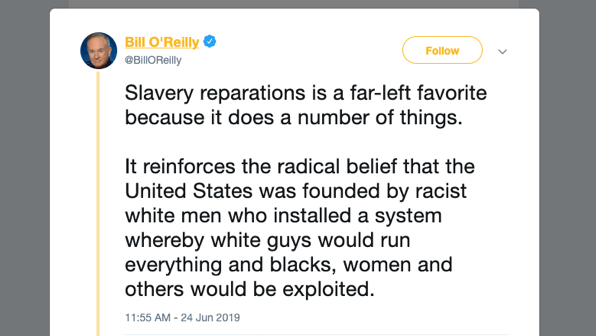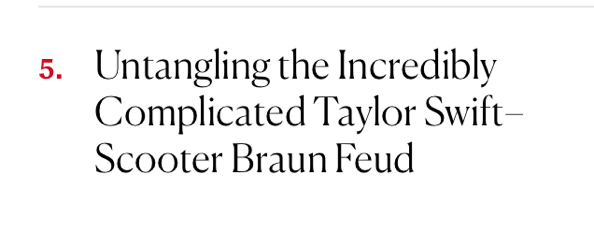It’s a fair question.
(Letterkenny. Pick up on it.)

It’s a fair question.
(Letterkenny. Pick up on it.)
It is by no means surprising, in retrospect, that the advent of cheap and easy DNA testing services and online databases had lead to a situation that Jeffrey Young over at HuffPo calls The Death of the Family Secret.
It’s a fascinating read. Make time.
It’s probably time to remind you of the glory that is Hurra Torpedo’s rendition of “Total Eclipse of the Heart”, from way back in 2005.
It’s still my favorite version of the song.
This is a really great piece on Phish from an outsider’s perspective.
So I went to a Phish show. It was a big deal, not because I love Phish, but because my partner Leah loves them, and I emphatically do not. In our nearly 14 years together, this hasn’t been a problem (apart from the time she tried to make the case that a band I like is similar to Phish, and I, uh, did not respond well), but after I reluctantly agreed to finally go to a show with her, it started to feel increasingly consequential: If ever an event could shatter any notion of our fundamental compatibility, it would be this one. And ending a long-term relationship surrounded by 25,000 people whose collective drug haze effectively constitutes its own microclimate seemed less than ideal. So I decided to do everything I could to approach the live Phish experience as gracefully as possible.
Ha!
And
Phish culture’s preppie-infused hippie essence is equally off-putting. Maybe it’s because punk happened; or because we’ve internalized the war on drugs; or because Don Henley saw a Deadhead sticker on a Cadillac; or because Phish’s music generally has no discernible message; or because it all seems so anachronistic and naive and lazily escapist. Whatever the reason, ingesting an assortment of psychedelics and blissfully writhing along with a 30-minute Trey Anastasio guitar solo while wearing a donut-patterned beach towel as a cape is the kind of behavior that might make you more enemies than friends.
And (my favorite):
This was the baggage I brought with me to Camden, New Jersey’s BB&T Pavilion, where we set up a blanket on the lawn about 20 minutes before showtime. There were six of us: three fans and three non-fans, which sounds like a nice even split until you remember that my two pseudo-anthropologist compatriots and I were actually outnumbered by about 8,000 to one. And let me tell you, those many thousands of Phishheads were very, very happy to be there. When the first few notes of the poetically named “Mike’s Song” kicked off the show, the crowd reacted as if Prince had returned from the dead and announced he’d be producing new episodes of The Wire.
Reader, I lol’d. (Emph. added.)
I mean, instead of putting a Hellcat engine in a Miata.
Late last month, Rogue One actor and British citizen of Pakistani heritage Riz Ahmed was supposed to appear at the massive Star Wars Celebration convention in Chicago.
He never got there, because Homeland Security wouldn’t let him board his flight. Because, you know, brown.
I don’t remember why I opened this tab, but clearly it’s STILL open because, in the Wikipedia article about Conan author Robert Howard, we find this:
Early 1932 saw Howard taking one of his frequent trips around Texas. He traveled through the southern part of the state with his main occupation being, in his own words, “the wholesale consumption of tortillas, enchiladas and cheap Spanish wine.” In Fredericksburg, while overlooking sullen hills through a misty rain, he conceived of the fantasy land of Cimmeria, a bitter hard northern region home to fearsome barbarians. […]
It was also during this trip that Howard first conceived of the character of Conan. Later, in 1935, Howard claimed in a letter to Clark Ashton Smith that Conan “simply grew up in my mind a few years ago when I was stopping in a little border town on the lower Rio Grande.”
A very uncanny-valley trailer for the film adaptation of Cats dropped today.
My sense is that never before have so many furries rubbed one out to the exactly the same thing at the same time.
Fran Blanche will show you. This is awesome.
n.b. Fran also makes kick-ass pedals, should you be in the market.
Brass Against and Maya Azucena wail on this cover of Janes Addiction’s Mountain Song. Play it loud.
Also and forever ago, here’s a disconcertingly joyful rendition of Love Will Tear Us Apart from New Orleans’ own Hot 8 Brass Band. It’s on your favorite music service, too, so you can easily give ‘m some love. I did.
This article summarizes very well my reservations about Pinker and his brand of “public intellectual.”
It begins:
You know, of course, what the most grating and infuriating human behavior is. It is not when another person is simply being unreasonable. It is when that person is constantly insisting that they are Just Being Reasonable, and wondering why you’re acting so crazy and irrational, while they themselves are in fact being extremely goddamn unreasonable. It is not when they are just wrong, but when they top it off by patronizingly explaining your own views to you, purporting to refute them, while not having the faintest understanding of what those views actually are.
Harvard psychologist Steven Pinker is that guy. He thinks many people are very unreasonable, and makes sweeping claims about their irrationality and moral imbecility, but often doesn’t bother to listen to what they actually say. While insisting for page upon page on the necessity of rationality, he irrationally caricatures and mocks ideas he hasn’t tried to understand. Then, when the people who believe those ideas become upset, he sees this as further proof of their emotion-driven thinking, and becomes even more convinced that he is right. It is a pattern displayed by many of those who are critics of “social justice” and the political left. Pinker, however, takes it to an extreme: Nobody has ever tried to look more Reasonable while being so ignorant and condescending.
If you’re curious about Pinker, go read the whole thing.
How a quartz watch actually works is kind of cool.
Bill O’Reilly, almost getting it:

Yeah, Bill, it’s a LOT like that.
In case the graphic gets lost:
Slavery reparations is a far-left favorite because it does a number of things. It reinforces the radical belief that the United States was founded by racist white men who installed a system whereby white guys would run everything and blacks, women and others would be exploited.
followed by
It also suggests that personal responsibility does not count when the legacy of slavery dropped a curtain of oppression on the black race and there is no recovering from that. The radical left says our society remains unjust to this day, forget personal responsibility.
(Widely linked; screenshot from BoingBoing.)
Someone has Kickstartered a Bluetooth-enabled cassette player.
WHAT THE ACTUAL FUCK? Cassettes are BULLSHIT. Trust me. I’m GenX. I know things.
So, as of now, it’s illegal — like, jailable illegal — to refer to burgers or hotdogs not made from animals as “veggie burgers” or “veggie dogs”.
More:
This week, a new law went into effect in Mississippi. The state now bans plant-based meat providers from using labels like “veggie burger” or “vegan hot dog” on their products. Such labels are potentially punishable with jail time. Words like “burger” and “hot dog” would be permitted only for products from slaughtered livestock. Proponents claim the law is necessary to avoid confusing consumers — but given that the phrase “veggie burger” hasn’t been especially confusing for consumers this whole time, it certainly seems more like an effort to keep alternatives to meat away from shoppers.
After seeing the new trailer for the film version of her latest book, I fell down a bit of a Donna Tartt hole online. I’d missed her Charlie Rose interview, for example, which is interesting; she’s famously press-shy and intensely private.
At the bottom of this Google pit I found this archival piece from Vanity Fair, which heralds her as a grand new voice in fiction. The web version dates it from 1999, but it’s written as though it was published closer to the release date of her first novel, The Secret History, in 1992.
Point being, it’s early on in her laconic career. Tartt, for all her accolades and success, is a slow writer. She’s taken a decade to produce each of the two followups to her splash debut. The Little Friend didn’t appear until 2002; her third and most recent work, The Goldfinch, came 11 years later.
Anyway, here’s the point; it’s in the last paragraphs of the Vanity Fair piece:
We’re driving down a dark back road in Bennington, and I suddenly wonder how fame and wealth will take her. “I’m like Huck Finn,” she says. “I can be perfectly happy on no money at all. Now that I have money, my life has changed not a bit. Everybody’s expecting me to buy a condo, make investments. I don’t care about any of that. I like ephemera—books, clothes. Food. That’s all.” I ask, musingly, if she ever intends to settle down and have a family. She shakes her head firmly. “Je ne vais jamais me marier,” she says.
Suddenly she spots, with delight, a whirling flock of goldfinches. “Look at these goldfinches—do you see?” she cries. “Goldfinches are the greatest little birds, because they build their nests in the spring, a long time after all the other birds do. They’re the last to settle down—they just fly around and they’re happy for a long time, and just sing and play. And only when it’s insanely late in the year, they kind of break down and build their nests. I love goldfinches,” she sighs, huddling tinily in the big car seat. “They’re my favorite bird.”
Emphasis added.
Yup, we see you, Ms Tartt.

I have a longstanding fascination with regional dialects. I think it’s because in my own lifetime, so many are vanishing thanks to easier mobility and the ubiquity of mass communication.
Only a few places retain a clear local accent or dialect — several areas of Louisiana, for example, including accents that outsiders would probably place in Brooklyn. There’s still a real Boston sound.
And off the coast of North Carolina, we find the hoi toiders. There’s video.